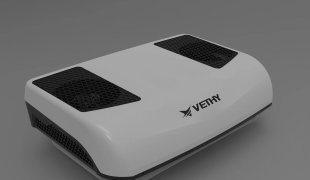How Does the Noise Level of a Rooftop AC Compare to Other Types of Air Conditioners?
January 23, 2025
Introduction to Air Conditioner Noise Levels
When it comes to choosing an air conditioner, noise is often one of the most significant factors, especially in environments where comfort and concentration are priorities. Whether you’re cooling a quiet residential bedroom, a busy office, or an industrial warehouse, the noise level can greatly influence the overall experience.
In this guide, we’ll take an in-depth look at rooftop AC units and how they compare to other types of air conditioners in terms of noise levels. We’ll explore how each type of AC works, where the noise comes from, and what types of users each option might suit best.
Understanding Rooftop Air Conditioners and Their Noise Levels
Rooftop air conditioners are popular in commercial and industrial settings due to their efficiency and space-saving design. However, their noise levels are often a concern for users, especially when it comes to environments where silence is a premium.
Key Noise Sources in Rooftop AC Units
The primary sources of noise in a rooftop AC come from the compressor and the fan. The compressor, which is essential for cooling, generates a steady hum or rumble as it pumps refrigerant through the system. Additionally, the fan, which moves a high volume of air, is critical for cooling large spaces effectively. Together, these two components are responsible for most of the noise produced by rooftop ACs.
Since rooftop ACs are usually exposed to the elements, they can also generate additional noise. Wind, rain, and temperature changes can interact with the unit and lead to amplified sound levels. For instance, during a windy day, rooftop AC units can produce extra noise due to the movement of air across the metal housing, which can create whistling or rattling sounds.
Typical Noise Levels in Rooftop ACs
On average, rooftop units produce between 50 and 70 decibels. For comparison, 50 decibels is similar to the sound of a moderate rainfall or a quiet conversation, while 70 decibels is closer to a vacuum cleaner or busy restaurant noise. This range can vary based on factors like model, size, and specific settings. Newer, high-end rooftop models often include features like insulated mounts and variable-speed compressors designed to minimize noise.
Despite efforts to control sound, rooftop ACs can transmit noise into the building below through vibrations. As a result, these units are best suited for large commercial or industrial spaces where noise concerns are minimal or where the building structure can absorb sound effectively.
Comparing Rooftop ACs to Other Air Conditioner Types
To understand the full spectrum of AC noise levels, it helps to compare rooftop ACs with other common types: split systems, portable units, and window air conditioners.
Rooftop AC vs. Split-System Air Conditioners
Split-system air conditioners, often referred to as "ductless mini-splits," are typically among the quietest options available. These systems are divided into two parts: an indoor unit, which contains the fan, and an outdoor unit, which houses the compressor. This design separation allows split systems to operate with much lower noise levels inside the building, often emitting less than 30-40 decibels indoors – akin to a whisper or quiet conversation.
Split systems are ideal for areas where noise control is essential, such as bedrooms or offices. In terms of outdoor noise, these units typically operate between 40-60 decibels, depending on the model. This is quieter than the average rooftop AC unit, making split systems a preferred choice for residential settings and smaller commercial spaces where indoor noise needs to be minimized.
Rooftop AC vs. Portable Air Conditioners
Portable air conditioners are often louder than split systems but can have similar noise levels to rooftop AC units, generally ranging from 50 to 70 decibels. However, because portable AC units are placed directly in the space they’re cooling, they are often perceived as louder than rooftop units, which are typically mounted outside.
The compressor and fan within portable units operate together, contributing to a constant background noise in the room. Portable ACs are useful for temporary cooling or as supplemental units, but they’re less effective in noise-sensitive areas. For individuals seeking flexibility and affordability, portable units may be a convenient solution, though the noise level may be a compromise.
Rooftop AC vs. Window Air Conditioners
Window air conditioners, like portable units, contain both the fan and compressor within a single unit. They typically range from 50 to 75 decibels, which is similar to rooftop ACs in terms of noise production. However, window units transmit more sound inside because they’re installed directly in a window frame. This design means that any noise generated by the unit is audible both inside and outside.
Window ACs are best suited for smaller rooms or areas where centralized cooling isn’t practical. They’re affordable, easy to install, and require minimal maintenance. While the noise level might not be a dealbreaker for users looking to cool a single room, it can be an issue in bedrooms or workspaces where quietness is valued.
User Intent: Why Are People Searching for This Comparison?
People who search for noise level comparisons across different types of air conditioners usually have specific needs or concerns. Understanding these user intents can help clarify why certain AC types might be a better fit for certain users.
Potential User Needs Behind Noise Level Comparisons
Comfort in Residential Settings: For homeowners and renters, comfort often means maintaining a peaceful and quiet environment. Noise levels can impact sleep quality, relaxation, and the overall living experience, especially in bedrooms, living rooms, and home offices. These users are likely to seek quieter solutions, such as split systems, to preserve the tranquility of their homes.
Productivity and Environment in Commercial Spaces: Business owners and facility managers may focus on minimizing noise disruptions in shared workspaces, conference rooms, or customer-facing areas. Excessive noise can reduce concentration, increase stress, and create an unpleasant experience for clients or employees. In these settings, quieter rooftop models or split systems may be preferred, as they provide powerful cooling while minimizing distractions.
Energy Efficiency and Long-term Cost Considerations: Noise levels and energy efficiency often go hand in hand. High-end air conditioners with energy-efficient technology are often quieter because they use variable-speed compressors and fans. For users interested in eco-friendly options or long-term savings, choosing an AC with advanced features may provide a balance between efficient cooling and noise control.
User Profiles Likely to Search for Noise Level Information
Homeowners Considering AC Upgrades: Homeowners looking to upgrade their cooling systems are often concerned with both noise and efficiency. Residential users may prioritize quiet systems, such as split ACs, for indoor comfort. They may also look for features like programmable settings and energy-saving modes.
Facility Managers and Commercial Property Developers: These users are responsible for maintaining comfortable environments in office buildings, retail stores, or large commercial spaces. They often need powerful cooling solutions, such as rooftop ACs, but may also look for units with sound-dampening technology to ensure that noise levels remain manageable.
Renters and Apartment Dwellers Seeking Affordable Cooling Options: For those living in rental spaces, portability and affordability are key factors. Portable and window units are common choices for renters due to their lower upfront costs and flexibility. While these options may be noisier, they provide convenience without the need for permanent installation.
Tips for Reducing AC Noise in Different Environments
Reducing AC noise can improve comfort and make spaces more enjoyable. Here are some practical tips for managing AC noise in various settings.
Soundproofing and Installation Adjustments
Roof-Mounted Insulation Solutions for Rooftop ACs: To reduce the noise transmission of rooftop AC units, sound-dampening materials like vibration-absorbing mounts can be installed. These materials minimize vibrations that travel through the building’s structure. Additionally, using insulated panels or enclosing the unit with soundproofing barriers can further lower noise levels.
Using Noise Barriers for Split and Window AC Units: Installing weatherstripping around the frame of a window unit or placing soundproof panels on nearby walls can help reduce the noise produced by these units. For split systems, ensure that the outdoor unit is installed on a stable, vibration-free surface and use insulation to further buffer any noise that may travel indoors.
Choosing the Right AC Type for Your Noise Sensitivity
Quieter Options for Homes and Offices: If noise is a significant concern, split systems are often the best choice for homes, offices, and quiet environments. Newer rooftop AC models designed with noise reduction technology are also available, providing a balance of power and quiet operation for commercial spaces.
High-Capacity Options with Noise Reduction Features: For large-scale cooling needs, consider rooftop units with variable-speed compressors and advanced fan technology. These units are designed to adjust to cooling demands dynamically, resulting in quieter operation during periods of lower usage.
Conclusion: Making an Informed Choice on AC Noise Levels
Choosing an air conditioner requires balancing several factors, with noise level being a crucial one. Rooftop ACs are louder but effective for large commercial spaces. Split systems offer a quiet indoor experience, making them ideal for homes and offices. Portable and window units provide affordable and flexible cooling options, though they can be noisy indoors.
With a clear understanding of each type’s noise characteristics, you can choose an AC that aligns with your needs and enhances comfort in your environment.





